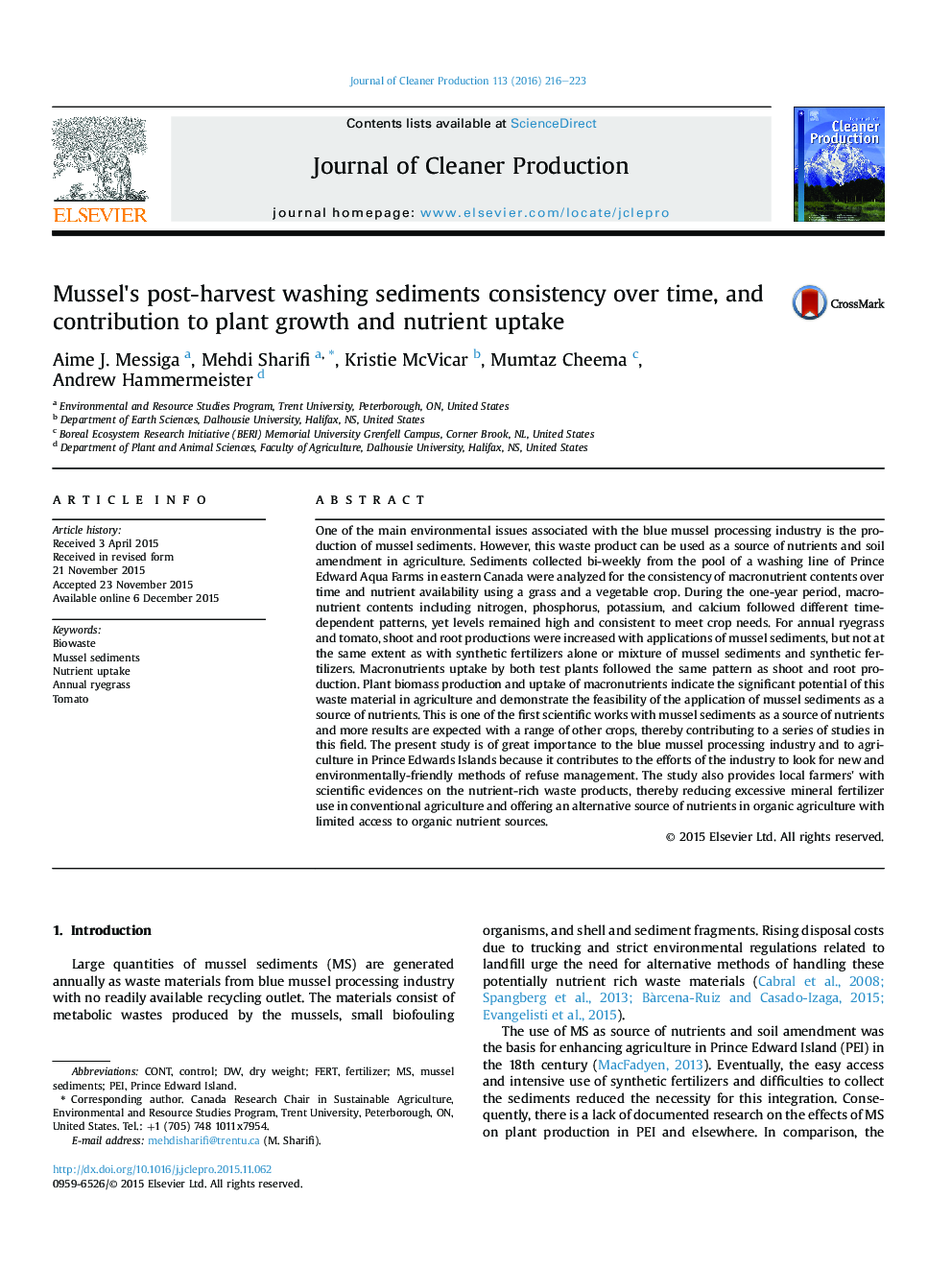| Article ID | Journal | Published Year | Pages | File Type |
|---|---|---|---|---|
| 8102849 | Journal of Cleaner Production | 2016 | 8 Pages |
Abstract
One of the main environmental issues associated with the blue mussel processing industry is the production of mussel sediments. However, this waste product can be used as a source of nutrients and soil amendment in agriculture. Sediments collected bi-weekly from the pool of a washing line of Prince Edward Aqua Farms in eastern Canada were analyzed for the consistency of macronutrient contents over time and nutrient availability using a grass and a vegetable crop. During the one-year period, macronutrient contents including nitrogen, phosphorus, potassium, and calcium followed different time-dependent patterns, yet levels remained high and consistent to meet crop needs. For annual ryegrass and tomato, shoot and root productions were increased with applications of mussel sediments, but not at the same extent as with synthetic fertilizers alone or mixture of mussel sediments and synthetic fertilizers. Macronutrients uptake by both test plants followed the same pattern as shoot and root production. Plant biomass production and uptake of macronutrients indicate the significant potential of this waste material in agriculture and demonstrate the feasibility of the application of mussel sediments as a source of nutrients. This is one of the first scientific works with mussel sediments as a source of nutrients and more results are expected with a range of other crops, thereby contributing to a series of studies in this field. The present study is of great importance to the blue mussel processing industry and to agriculture in Prince Edwards Islands because it contributes to the efforts of the industry to look for new and environmentally-friendly methods of refuse management. The study also provides local farmers' with scientific evidences on the nutrient-rich waste products, thereby reducing excessive mineral fertilizer use in conventional agriculture and offering an alternative source of nutrients in organic agriculture with limited access to organic nutrient sources.
Related Topics
Physical Sciences and Engineering
Energy
Renewable Energy, Sustainability and the Environment
Authors
Aime J. Messiga, Mehdi Sharifi, Kristie McVicar, Mumtaz Cheema, Andrew Hammermeister,
